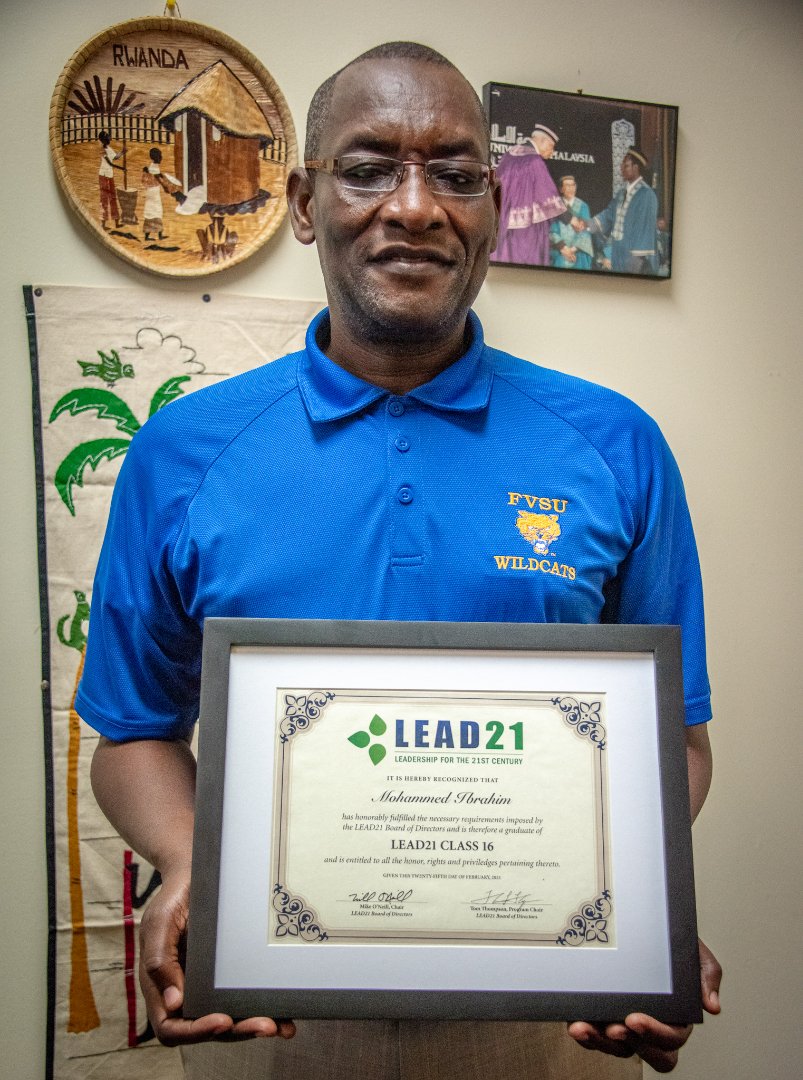Dr. Mohammed Ibrahim, chair of Fort Valley State University’s Department of Agricultural Sciences, is one of several graduates from a reputable leadership development program.
The agricultural economics professor recently participated in LEAD21. This one-year professional development opportunity is intended to develop leaders in land-grant institutions and their strategic partners who link research, academics and Extension to lead more effectively in an increasingly complex environment, either in their current position or as they aspire to other positions.
The goal of LEAD21 is to enhance application of skills and knowledge learned in five core and four secondary leadership competencies. In addition, the aim is to develop a peer leadership network in order to enhance personal leadership practice, collaboration and diversity of perspective. Another goal is to develop and implement an individual leadership development process.
As a Class 16 graduate, Ibrahim said he appreciates gaining skills to further enhance his role as chair of the Department of Agricultural Sciences. Divided into three virtual sessions due to COVID-19, the first one took place in June 2020, the second in October 2020 and the third in February 2021. Each session was about four days long.
“It gives you an idea of who you really are in decision-making and how you think,” Ibrahim said about the overall experience. The process also included his peers and supervisors answering survey questions to see how they perceive him in different areas. Ibrahim said some of the key tactics he learned involved handling conflicts, developing goals and working in teams.
“The objective is to help you understand how you make decisions,” he noted “It helped me with knowing my strengths and weaknesses. ”Participants completed projects such as leadership dilemma, where they had to come up with a problem that they are trying to solve at the workplace. Through this experience, Ibrahim looked at how he could improve his department. He aims to make the agricultural sciences programs more visible and highlight their strengths, as well as review and revise the curriculum in various programs.
“This is where the leadership styles come in place,” he said. “LEAD21 teaches you how to diagnose those situations.” He said understanding his leadership style and peer coaching were the greatest benefits. He also participated in the Myers–Briggs Type Indicator, which is an introspective self-report questionnaire indicating differing psychological preferences in how people perceive the world and make decisions.
“It helps you understand who you really are and how you can lead others to produce better results,” Ibrahim explained. He also enjoyed the design thinking activity. “The group sketched out what they were thinking on a certain issue. Everyone was heard and determined the main factors to achieve our goal. The end goal is to produce something. This can be applied in different areas,” he said.
The research professional encourages other FVSU faculty and staff to participate in LEAD21. He acknowledged leadership for encouraging him to participate. “It was a great experience. I came out with a lot of ideas,” he said. For his accomplishment, Ibrahim received a LEAD21 Class 16 certificate.

